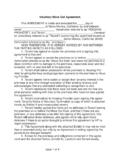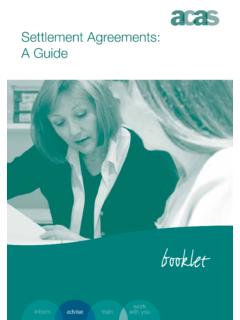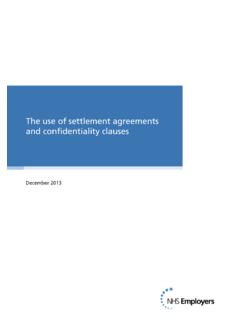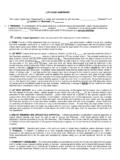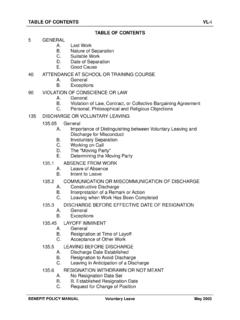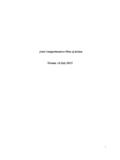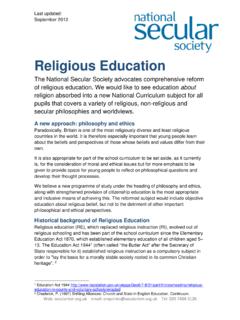Transcription of Automatic Exchange of Financial Account …
1 Automatic Exchange of Financial Account information BACKGROUND information BRIEF Updated: January 2016 For further information , please contact: Pascal Saint-Amans, Director, OECD Centre for Tax Policy and Administration, E-mail: Monica Bhatia, Head of the Global Forum Secretariat, OECD Centre for Tax Policy and Administration, Email: Achim Pross, Head of Division, OECD Centre for Tax Policy and Administration, E-mail: 2 Automatic Exchange OF information A full overview of the work of the OECD and the Global Forum in the area of the Automatic Exchange of information in tax matters, as well as a wealth of jurisdiction-specific information , can be found on the joint AEOI Portal. Vast amounts of money are kept abroad and go untaxed to the extent that taxpayers fail to comply with tax obligations in their home jurisdictions. Jurisdictions around the world, small and large, developing and developed, OECD and non-OECD, stand united in calling for further action to address the issues of international tax avoidance and evasion.
2 Co-operation between tax administrations is critical in the fight against tax evasion and a key aspect of that co-operation is Exchange of information . The OECD has a long history of fostering greater tax co-operation and improving all forms of Exchange of information on request, spontaneous and Automatic and the Multilateral Convention on Mutual Administrative Assistance in Tax Matters and Article 26 of the OECD Model Tax Convention provide a basis for all forms of information Exchange . A major breakthrough towards more tax transparency was accomplished in 2009 with information Exchange upon request becoming the international standard. In recent years, there has been another step change in international tax transparency. On 9 April 2013, the Finance Ministers of France, Germany, Italy, Spain and the UK (the countries that developed the FATCA intergovernmental agreements with the United States) announced their intention to Exchange FATCA-type information amongst themselves in addition to exchanging information with the United States.
3 Following the commitment to establish Automatic Exchange as the new global standard made by G8 Leaders in June 2013, the G20 Leaders at their Summit in September 2013 fully endorsed the OECD proposal for a truly global model of Automatic Exchange and invited the OECD working with G20 countries to present such a new single standard for Automatic Exchange of information in time for the G20 February 2014 meeting. In February 2014, the G20 Finance Ministers and Central Bank Governors endorsed the global standard for Automatic Exchange of tax information . Further political support for the new global standard on Automatic Exchange was evidenced at the OECD Ministerial Council Meeting held in Paris 6-7 May 2014 with the adoption of the Declaration on Automatic Exchange of information in Tax Matters. The adherents declared their determination to implement the new global standard swiftly and on a reciprocal basis, called on all Financial centres to do so without delay, and highlighted the need to provide technical assistance to developing countries to help them benefit from the new standard.
4 Following approval of the Standard for Automatic Exchange of Financial information in Tax Matters by the OECD Council on 15 July 2014, the full Standard was endorsed by the G20 Finance Ministers at their meeting in Cairns in September 2014, as well as by G20 Leaders at their Summit in Brisbane in November 2014. See the Annex for G8 and G20 statements providing support for the work. By September 2014, nearly 50 jurisdictions had joined this group and committed to the early adoption of the standard developed by OECD, including a specific and ambitious timetable for doing so. For more information , please see: 3 Furthermore, on 14 October 2014 the 28 Member States of the European Union reached a political agreement on an amended Directive that will implement the new Standard in the EU. The political agreement was formalised through the adoption of the amended Directive by the ECOFIN Council on 9 December 2014. The Global Forum on Transparency and Exchange of information for Tax Purposes, which brings together more than 120 jurisdictions working to ensure effective implementation of the standards on Exchange of information for tax purposes, has also endorsed the Standard.
5 In August 2014, it created a commitment process to enable its members to publicly commit to a timetable to implement the new Standard. This was a key step in its role in monitoring the implementation of the Standard and promoting a level-playing-field. All Global Forum members, other than developing countries that do not house a Financial centre, were asked to commit to begin automatically exchanging information in accordance with the Standard, reciprocally and with appropriate partners, by 2017 or 2018. 97 jurisdictions have since made that commitment, which continues to grow in number, with Kuwait being the latest country to commit in November 2015. On 29 October 2014, 51 jurisdictions, 38 of which were represented at ministerial level, signed the first ever multilateral competent authority agreement to automatically Exchange information under the Standard, based on Article 6 of the Multilateral Convention.
6 The significance of this event was demonstrated by the participation of 38 ministers in the signing ceremony, the largest gathering of ministers to take joint action to address tax evasion. To date, several jurisdictions joined the multilateral competent authority agreement thereby increasing hugely the network of jurisdictions willing to Exchange information automatically through this multilateral route. The competent authority agreement specifies the details of what information will be exchanged and when. It is a multilateral framework agreement, with the subsequent bilateral exchanges coming into effect between those signatories that file the subsequent notifications under Section 7 of the agreement. The latest information on the list of signatories to the multilateral competent authority agreement is available here: 1. A global standard for Automatic Exchange of Financial Account information Under the Standard, jurisdictions obtain information from their Financial institutions and automatically Exchange that information with other jurisdictions on an annual basis.
7 It sets out the Financial Account information to be exchanged, the Financial institutions that need to report, the different types of accounts and taxpayers covered, as well as common due diligence procedures to be followed by Financial institutions. The new Standard draws extensively on earlier work of the OECD in the area of Automatic Exchange of information . It incorporates progress made within the European Union, as well as global anti-money laundering standards, with the intergovernmental implementation of the US Foreign Account Tax Compliance Act (FATCA) having acted as a catalyst for the move towards Automatic Exchange of information in a multilateral context. To prevent taxpayers from circumventing the CRS it is specifically designed with a broad scope across three dimensions: The Financial information to be reported with respect to reportable accounts includes all types of investment income (including interest, dividends, income from certain insurance contracts and other similar types of income) but also Account balances and sales proceeds from Financial assets.
8 4 The Financial institutions that are required to report under the CRS do not only include banks and custodians but also other Financial institutions such as brokers, certain collective investment vehicles and certain insurance companies. Reportable accounts include accounts held by individuals and entities (which includes trusts and foundations), and the standard includes a requirement to look through passive entities to report on the individuals that ultimately control these entities. The CRS also describes the due diligence procedures that must be followed by Financial institutions to identify reportable accounts. The Standard now needs to be implemented by jurisdiction. The implementation process can be summarised at a high level as involving the following four steps, which can be done in any order including being pursued in parallel: 1. Translate the reporting and due diligence requirements into domestic law.
9 2. Select a legal basis for the Exchange of information . 3. Put in place the administrative and IT infrastructure to collect and Exchange information . 4. Protect confidentiality and data safeguards. Further guidance on implementation can be found in the CRS Implementation Handbook. In addition, the OECD regularly publishes answers to Frequently Asked Questions in relation to the CRS. 2. The legal basis Different legal bases for Automatic Exchange of information already exist. Whilst bilateral treaties such as those based on Article 26 of the OECD Model Tax Convention permit such exchanges, it may be more efficient to establish Automatic Exchange relationships through a multilateral information Exchange instrument. The Multilateral Convention on Mutual Administrative Assistance in Tax Matters, as amended in 2011, is such an instrument. It provides for all possible forms of administrative co-operation between States, contains strict rules on confidentiality and proper use, and permits Automatic Exchange of information .
10 The Multilateral Convention is now a truly global instrument. Following the recent signatures by Israel and Niue, there are now 92 jurisdictions participating in the Convention, including all G20 countries (Chart of participating jurisdictions). Automatic Exchange under the Multilateral Convention requires a separate agreement between the competent authorities of the parties, which can be entered into by two or more parties thus allowing for a single agreement with several parties (with actual Automatic Exchange taking place on a bilateral basis). Such an agreement would activate and operationalise Automatic Exchange between the participating countries. It would specify the information to be exchanged and would also deal with practical issues such as the time and format of the Exchange . The Multilateral Competent Authority Agreement, which is based on the Model CAA, serves that function.










